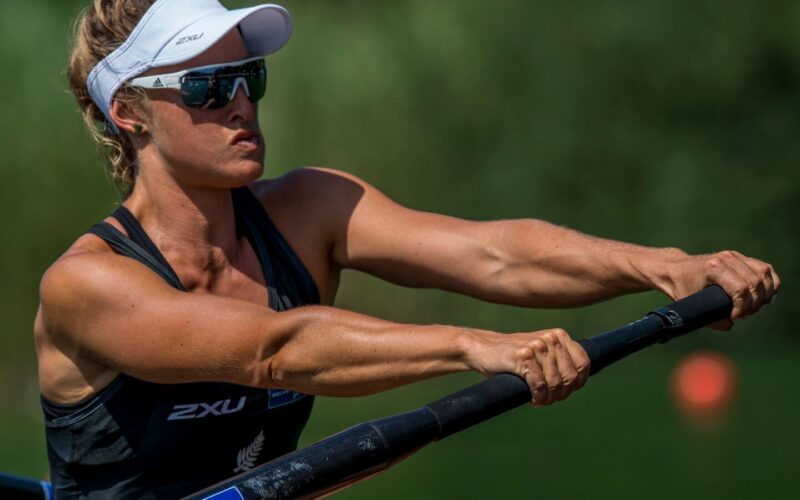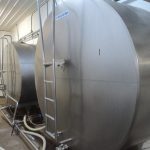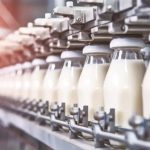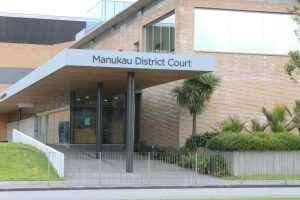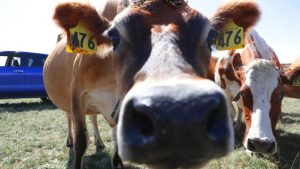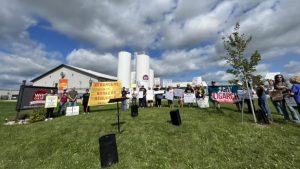
Even now, Olympic rower Rebecca Scown feels her early years on the farm guiding her.
By Rebecca Scown, guest columnist on Eating the Elephant this week, is a former rowing World Champion and a holder of two Olympic medals, the 2012 Bronze and 2016 Silver.
In this series, the team reflect on what the Olympics mean for NZ ag
I have vivid memories of my childhood on the farm. Most of my days were spent unsupervised – building huts, riding motorbikes and ponies, raising calves and lambs, hitching sleds to cars, and of course, lighting the occasional fire. I was lucky that such good, clean fun defined my early years.
When I was four, our horse stud transformed into a dairy farm. The horses, along with my carefree weekends and Christmas mornings, were soon replaced by early starts in the milking sheds.
This transition stands out in my memory. I didn’t enjoy it much – perhaps because it signalled my shift from carefree childhood to work and all the responsibility and new mindsets that come with it.
Becoming an Olympian was never something I envisioned as that farm kid. Watching the Olympics on television, I saw the athletes as superhuman – certainly not people from a dairy farm in Taranaki.
While sport was something I loved, I didn’t stand out at all athletically growing up. Attending a small primary school didn’t help – at one point we had a roll of only eight kids, three of whom were my brother, my sister and me.
At that size, we weren’t even able to form teams for most sports. So I soon found myself drawn to swimming and spent hours going up and down the pool, knowing even then that you had to work hard to see results. Looking back, that was just one of many lessons the farm helped me to learn that would prove invaluable in my Olympic rowing career.
Another lesson learnt growing up on the farm was to take initiative. If a job needed doing, simply get on with it. Don’t wait for someone else and make room to blame others or shirk responsibility. In my Olympic career, that self-reliance and responsibility looked like heading out for a three-hour cycle or logging an extra 30 minutes on the rowing machine, on top of a hard week of squad training.
It’s about refusing to take the easy option over the one that will see you win in the end. It’s surprising how, even at the elite level, many athletes struggle to be honest with themselves about their how efforts and performance match (or don’t).
The next lesson the farm taught me, however, was that self-reliance has limits too. From my time covering for others in the milking shed, relying on neighbours, competing in Olympic teams and working with others post-sport, I’ve come to understand how vital strong, supportive teams are for reaching goals and truly enjoying the journey.
I recall clearly a breakthrough session with my Under-23s coach, Marion Horwell, when the rhythm and timing finally clicked. We were trying to achieve a more efficient rowing action – putting the catch in at the “off beat” and “riding the boat”.
Marion’s excitement when I “got it” was electric. It made me excited too. From then, that rowing rhythm locked in me for life, and my timing in the boat turned into one of my best assets.
The final lesson from the farm is about getting comfortable with failure and change. My London 2012 pair partner Juliette (Haigh) Drysdale and I had been World Champions for two years at that stage. We were used to winning. This time, though, we found ourselves beaten in our heat by five seconds to a crew we’d never lost to and with a disappointing time.
We had a choice in that moment. Change what we were doing, or stick to what we had always done. Accepting that a change was necessary, we worked on our technique and race plan – executing in the final to come away with the bronze. The ability to stop, re-assess and adapt helped us to focus on what actually made the boat go faster – rather than wasting time on a once-promising, but ultimately flawed path.
Since competing at the Olympics, you could say I’ve come full circle. These days, I run a charity called Youth Experience Sport (YES) in London, supporting disadvantaged young people to develop life skills through sport – as opposed to calf raising, motorbike riding and light arson. After all that sport has given me, helping young people benefit in the same way is incredibly rewarding.
Even now, I feel those first years on the farm guiding me. London and the Olympic spotlight might seem a long way from a Taranaki milking shed, but not for me.
You can now read the most important #news on #eDairyNews #Whatsapp channels!!!
🇺🇸 eDairy News INGLÊS: https://whatsapp.com/channel/0029VaKsjzGDTkJyIN6hcP1K
